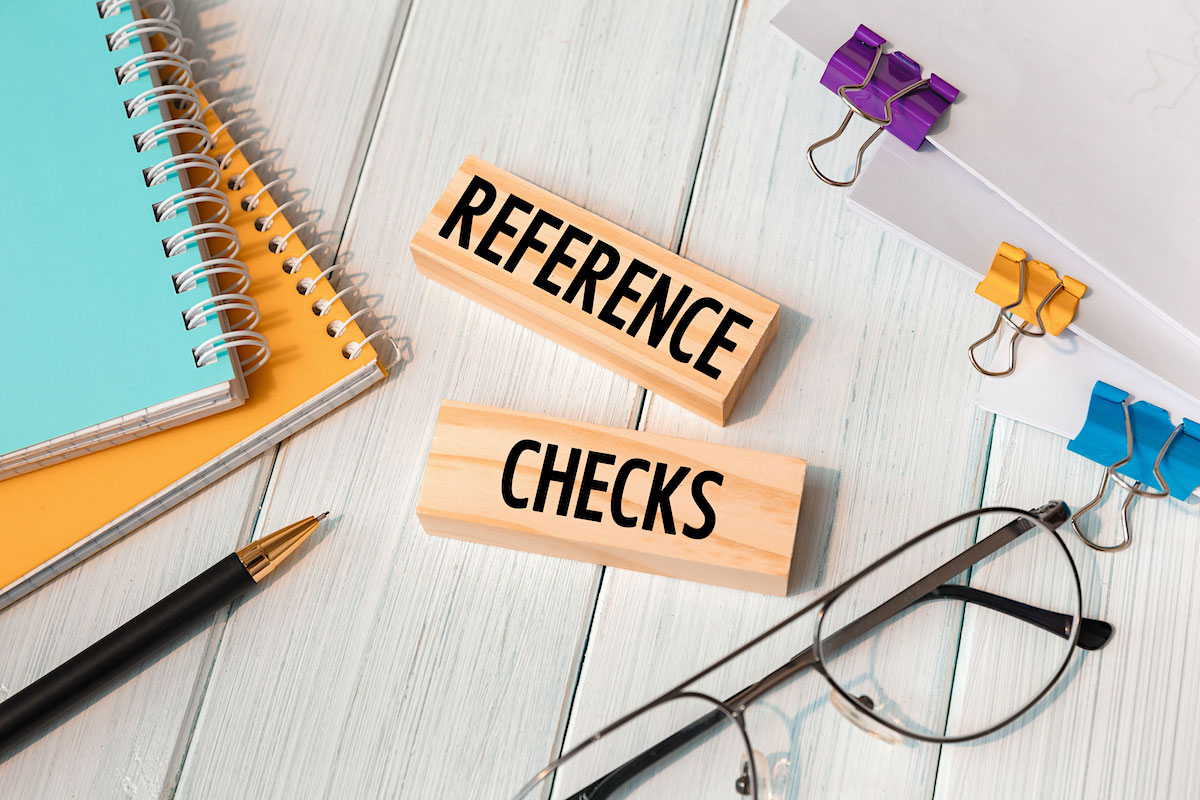DIY Recruitment – When Reference Checking can land you in Hot Water
Not so long ago, a candidate called our office very angry and distressed. An unauthorised reference check had resulted in him being sacked and he was threatening to sue. But we hadn’t done the check. Who did and why shouldn’t they have done it?
Bernadette Eichner

Not so long ago, a candidate called our office very distressed. He had lost his job and held us squarely responsible. It would be fair to say he was pretty angry – threatening legal action and calling us things that would wither the strongest mind.
It turned out a reference check had been done with someone at his current place of employment and when his Manager heard about it, he sacked our guy on the spot. So he had every right to be angry.
But it wasn’t us who had done the reference check. Professional recruiters never do reference checks that have not been authorised by the candidate.
Unbeknown to us, our client had picked up the phone to “someone he knew” and “asked around” about our candidate and of course it got back to his Boss that he was looking for another job. Sadly, the candidate was also unsuccessful in securing the job he’d been shortlisted for (based on the winning candidate’s more appropriate skills and experience), so he was left with no job at all.
So, when can a reference check give you exactly the information you need to make a decision and when can your approach land you in hot water?
The advantages of reference checking – the best predictor of where someone is going is where they have been
Reference checks provide the last piece in the recruitment puzzle when we’re assessing someone’s suitability for a role in our organisation. We’ve already ticked off their skills and experience in the screening process and our face to face interview process (when done well) has given us a good sense of the person’s behavior traits, personality, problem solving skills, relationship management ability and so on.
For years behavioural psychologists such as B.F Skinner and Walter Michel have posited that “The best predictor of future behaviour is past behaviour”. And research shows that when it comes to employment and work behaviours, it’s pretty spot on. But that doesn’t mean people can’t grow and develop and change over years.
A reference check allows you to use your investigative skills in the same way you do when interviewing a candidate – asking lots of open ended, scenario-based questions to find out as much as you can about what a person knows and how they use that knowledge and skill to solve problems, build relationships, solve conflicts and basically get along and do well. Of course a good reference check also enables us to check on things like work ethic, absenteeism, honesty and so on. And if you found something in your interview process that you need to understand a little better, then a reference check with a third party is a great way to achieve that.
We recommend a minimum of two reference checks – ideally, you want consensus from a couple of sources to be really sure about someone. And we always go to a third if the first two are conflicting. We must always allow for personality clashes that may cloud a referee’s view.
If your reference checks confirm what you’ve already deduced yourself through the interview process, then you are onto a winner! But if the reference checks throw up some doubts about your candidate’s suitability for the role, then you’ll either discount the candidate altogether or bring them back in for another interview to probe a bit further.
Either way, solid reference checks give you the confidence to proceed one way or the other.
Who should reference checks be done with?
Even though the saying “The best predictor of future behaviour is past behaviour” has proven to be pretty spot on, people do mature and develop their cognitive and emotional skills and behaviours over time.
This is particularly true in the workplace where mentoring, training and so on help to shape leaders. To be fair to your candidate, you really want to know how they’ve performed in perhaps the past five years.
Reference checks should only be conducted with people the candidate has authorised you to speak to.
I know, I can hear you saying – no one is going to give you a referee that will speak negatively about them. Not necessarily so. And that’s where your good investigative skills come into play. If you know the right questions to ask to get the information you need, what you’ll get is an honest and objective appraisal of the candidate – warts and all. What you choose to do with that information is up to you.
Ideally, you want to talk to someone the candidate has reported to. Or, if the role they’re being considered for is a Managerial role, you may wish to speak to someone who was managed by them. If you’re hiring a Sales/BDM type person, speaking to a past or current client can also be helpful – but only if you’ve been authorised to do so.
Under no circumstances should you conduct a reference check with anyone not authorised by the candidate – and that means no casual phone call, no quick passing of a name over a beer in the pub, no “Hey, do you know this person?” type of conversation.
Why can’t I just quietly “ask around” about someone?
Well, first of all, there’s no such thing as “quietly asking around” when you’re breaching someone’s confidentiality! Remember the candidate I talked about at the opening of this blog?
Besides, the person you know may not know the candidate well enough or have had enough experience working with them to provide an objective opinion.
Then there’s the added problem that because they’re not prepared for your question (because the candidate hasn’t given them the heads up that they’re a referee), their reaction will almost always be an emotionally driven one and lead to comments about the person’s personal impact on them rather than their professional skills. All sorts of bias and misinformation can abound!
And last but not least, it can get you into legal trouble!
What has the law got to do with reference checks?
In Australia, we have lots of laws that protect employees during both the recruitment process and when in the employment environment – Anti Discrimination legislation at State level and The Disability Discrimination Act 1992, Age Discrimination Act 2004, Racial Duscrimiantion Act 1975, and the Sex Discrimination Act 1984 at Federal level.
When it comes to reference checks, it’s a piece of legislation called The Privacy Act 1988 that is front and centre. The Privacy Act dictates what information can be collected about a person, how it can be used and who can access it. The Act also enables individuals to access information that has been collected about them. And this includes the contents of employment reference checks.
The Privacy Act allows candidates to request access to all notes provided about them during any part of a recruitment process. And this permission extends to notes made by any prospective employer, recruitment agency, or reference checking company in Australia. The only time you can seek an exemption from handing over your notes is if they infringe on the privacy of others or contain trade secrets.
An organisation (or person) can be sued by an employee or former employee if they believe denigrating information was provided during reference checks and this has directly harmed their chance of future employment.
Of course the law allows you to access employee records in the course of a reference check without the risk of being sued. The trick is to stick to the details of the employment relationship and not make comments that are of a personal nature. For example, “his wife’s a bit of a nightmare I think” has nothing to do with a candidate’s ability to do a job or not – it is a personal opinion that may infer his work performance suffers because of his marital status – something that may not be true at all. I include it here because I’ve heard exactly that phrase in a reference check!
A company may be liable if one of their employees provides information to a recruiter or prospective employer as they can be deemed to be representing the organisation. But this is not the case if the referee no longer works for the company.
This is why some companies have a “No Reference” policy and only confirm basic information such as job title and dates of employment. And it’s one of the reasons that many Referees do not respond to automated reference checks where they have been emailed a list of questions to respond to – they are not permitted to speak on behalf of the organisation.
What if the candidate turns out to have lied or misrepresented themselves?
It’s not always a Referee who can be held accountable for misrepresentation of a candidate.
Sometimes the candidates themselves are found out to be providing false information during the recruitment and reference checking process. If the misrepresentation is found out during the recruitment process, then the prospective employer can withhold or withdraw any offer of employment on that basis.
If the candidate has already started in the job when the misrepresentation becomes apparent, the company can terminate the person’s employment.
Misrepresentation can be anything from falsely claiming to have particular educational qualifications essential to the job, to saying “No you don’t have a criminal record” when asked, when in fact you do.
So, while it is illegal to discriminate against someone on all sorts of grounds, it is not illegal to terminate their employment if they have lied about any of those things in order to get the job.
Making the most of the reference checking opportunity while staying out of trouble
The best results when it comes to reference checking are achieved by professional human-to-human verbal reference checks.
Apart from the fact that you’re outsourcing the risk, professional reference checkers such as recruitment consultants are adept at drawing information out from a cautious referee that they may have been uncomfortable providing in writing in response to an automated service.
But if you want to do your own reference checks, you’ll be pretty safe if you keep your questions open-ended and related to the candidate’s employment history and behaviours at work. Try not to stray into territory that is too personal.
Professional recruitment and fair pricing? Yes, it‘s possible!
At Just Right People Recruitment we‘ll give you the flexibility to choose between three different pricing models. And we guarantee each one will deliver a high-quality recruitment outcome tailored to your job, your budget and your specific needs. Now, that’s fair!
Learn more…Bernadette Eichner
Bernadette Eichner, Cofounder and CEO of Just Right People, is a recruitment industry entrepreneur and thought leader in Australia, totally committed to improving the recruiter experience for clients and candidates alike. Her secret to life is to “just do the next thing that needs to be done”.
Follow Bernadette

